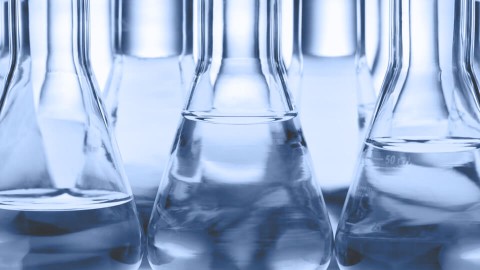VINNAPAS® DPX 271

VINNAPAS® DPX 271 is an aqueous polymer dispersion produced from vinylacetate monomer.
Properties
- Meets the requirements of strain group D3 of EN 204 without addition of a catalyst
- No discoloration of the glue line when hot pressing
- Ultra low formaldehyde
- High fillability with alkaline fillers
Data sheets
VINNAPAS® DPX 271 is especially suited as raw material for water resistant wood glues.
If the product is used in applications other than those mentioned, the choice, processing and use of the product is the sole responsibility of the purchaser. All legal and other regulations must be complied with.
For questions concerning food contact status according the chapter 21 CFR (US FDA) and German BfR, please feel free to contact us.
Wacker Chemie AGGisela-Stein-Strasse 1
81671 Munich
Germany
Storage
When the dispersion is stored in tanks, proper storage conditions must be maintained. The product has a shelf life of 6 months starting from the date of receipt if stored in the original, unopened containers at temperatures between 10 and 30 °C. Any longer periods for the maximum storage period that may be described in the Certificate of Analysis which accompanies each shipment of the product, take preference over this suggestion in which case the time period stated in the Certificate of Analysis shall be solely authoritative. Iron or galvanized iron containers and equipment are not recommended. Corrosion could result in discoloration of the dispersion or blends made from it in further processing. We therefore recommend the use of containers and equipment made of ceramic, rubberized or enameled materials, appropriately finished stainless steel, or plastic (rigid PVC, polyethylene or polyester resin). As polymer dispersions may tend to superficial film formation, skins or lumps may be formed during storage or transportation. A filtration process is thus recommended prior to utilization of the product.
Preservation for Transport, Storage and further Processing
The product is adequately preserved during transportation and storage if kept in the original, unopened containers. However, if it is transferred to storage tanks, the dispersion should be protected against microbial attack by adding a suitable preservative package.
Measures should also be taken to ensure cleanliness of the tanks and pipes. In unstirred tanks, a layer of preservative-containing water should be sprayed onto the surface of the dispersion to prevent the formation of unwanted skin and possible attack by microorganisms. The thickness of this water layer should be < 5 mm for low viscosity dispersions and up to 10–20 mm for high viscosity products. Proper procedures – periodic tank cleaning and sanitization – must be set up in order to prevent microbial attack. Contact your biocide representative/supplier for further plant hygiene recommendations. Measures should be taken to ensure that only clean air enters the tank when the dispersion is removed.
Finished products manufactured from polymer dispersions usually also require preservation. The type and scope of preservation will depend on the raw materials used and the anticipated sources of contamination. The compatibility with other components and the efficacy of the preservative should always be tested in the respective formulation. Preservative manufacturers will be able to advise you about the type and dosage of preservative required.
Sales and support
Allentown, PA 18106-9346
United States
+1 517 264-4088 (Fax)
How can we help you?
- Do you need help in choosing a product or do you require technical support? If so, please contact our experts.


